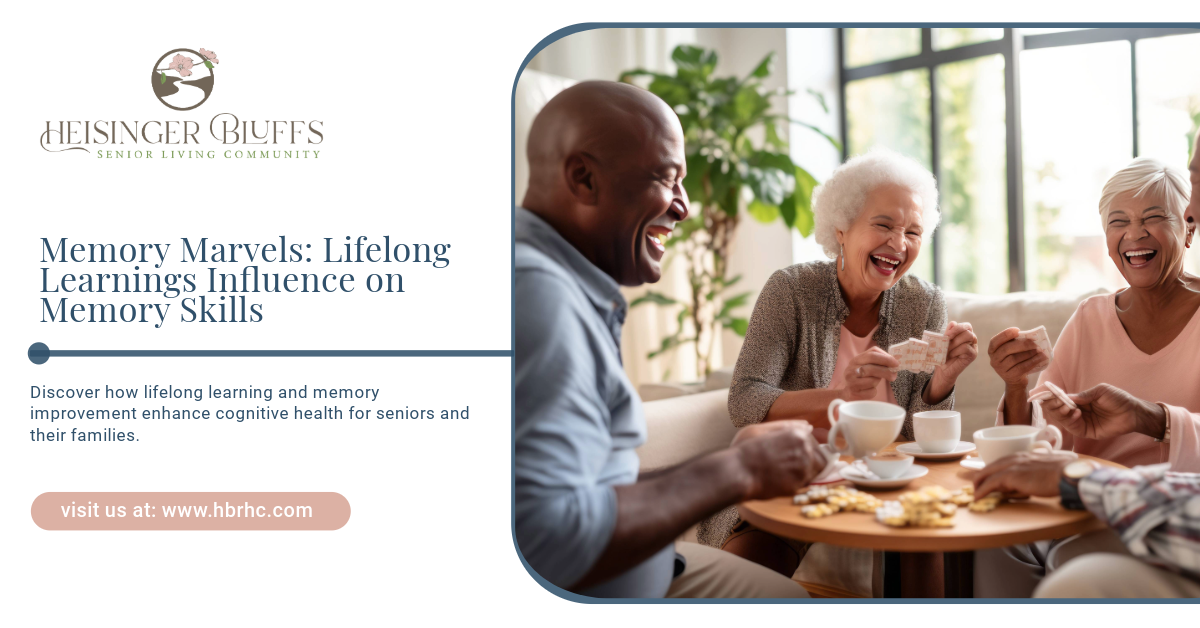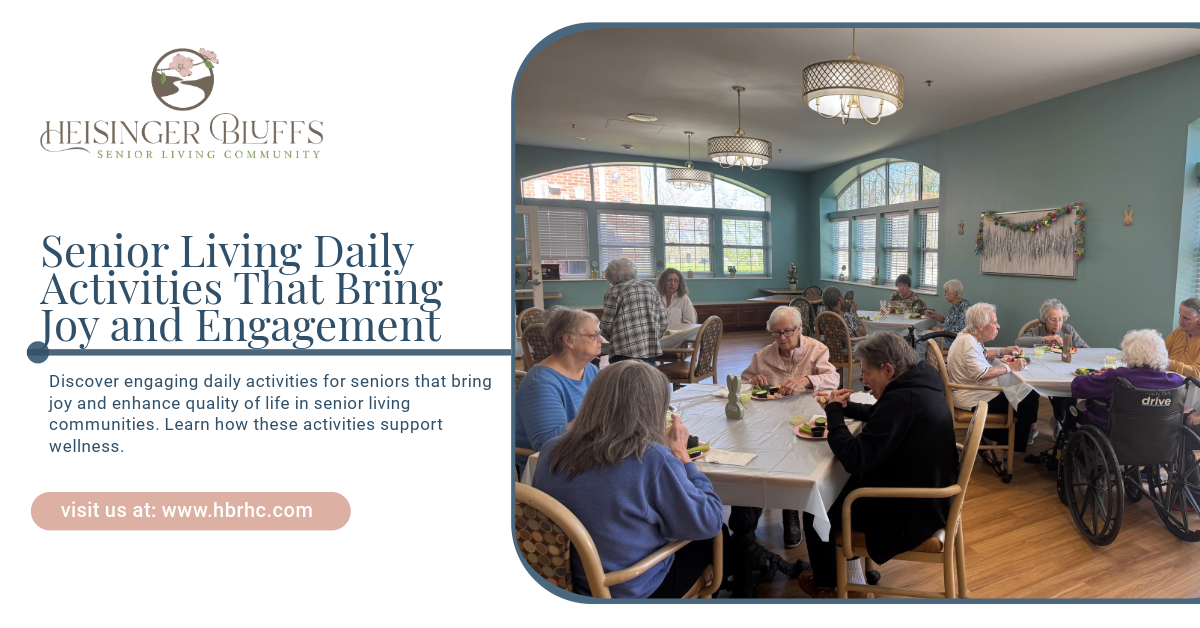Memory Marvels: Lifelong Learnings Influence on Memory Skills

Lifelong Learning Benefits
Lifelong learning plays a pivotal role in enhancing cognitive health and is especially important for seniors. This section explores the impact of continuous education on cognitive skills and overall well-being.
Impact on Cognitive Health
Engaging in lifelong learning contributes significantly to cognitive health. Studies show that cognitive skills are essential for lifelong education; effective childhood development and intellectual functioning positively correlate with survival, lifelong health, and overall human capital. Adults who prioritize ongoing learning tend to maintain and even enhance their cognitive abilities as they age.
The process of learning stimulates the brain, encouraging new connections among neurons and promoting mental agility. For seniors, actively participating in educational programs can serve as a protective factor against cognitive decline. Here's a summary of the cognitive health benefits associated with lifelong learning:
| Benefit | Description |
|---|---|
| Improved Memory | Engaging in new learning experiences helps strengthen memory skills. |
| Enhanced Problem-Solving | Lifelong learning encourages critical thinking and adaptability. |
| Better Mood | Learning new things can lead to increased satisfaction and happiness. |
| Delayed Cognitive Decline | Regular engagement in educational activities can help ward off dementia and other cognitive disorders. |
Importance for Seniors
Lifelong learning holds particular significance for seniors within senior living communities. Not only does it encourage mental stimulation, but it also fosters social interaction and helps build a sense of community. In an age where isolation can become a concern, participating in educational activities can significantly reduce feelings of loneliness.
Moreover, as industries evolve rapidly, the importance of adapting skills becomes evident across generations. Lifelong learning is essential for helping seniors stay relevant and engaged, allowing them to explore new interests or even develop skills they never pursued earlier in life.
As seniors continue to engage in cognitive-stimulating activities, they benefit from both emotional and mental health advantages. These range from reigniting motivation and rediscovering passions to improving mood and overall fulfillment in life. To learn more about the benefits of this approach, visit our article on benefits of lifelong learning for seniors.
Understanding the significance of lifelong learning provides families with the insight they need to encourage seniors to participate in programs that bolster cognitive health. Continuous education proves to be not only beneficial but necessary for thriving in later years. For more information on programs tailored for seniors, check our resources on cognitive health and lifelong learning.
Factors Affecting Memory
Understanding the factors that impact memory is essential for promoting lifelong learning and cognitive health, especially in senior living communities. Key areas that influence memory include sleep, nutrition, and physical exercise.
Sleep and Cognitive Function
Sleep plays a crucial role in cognitive function, particularly in memory formation and retention. Adequate sleep is vital for all age groups, but it is especially important for seniors who may experience changes in their sleep patterns. Shortened sleep duration has been shown to have a detrimental effect on cognitive development, leading to challenges in learning and memory.
| Key Sleep Facts | Importance |
|---|---|
| Adults need 7-9 hours per night | Essential for memory consolidation |
| Sleep cycle includes REM and non-REM stages | Both stages are important for cognitive function |
Nutrition and Cognition
Nutrition is another critical factor influencing cognitive health and memory. Essential nutrients, such as iodine, iron, folate, zinc, vitamin B12, and omega-3 polyunsaturated fatty acids, support cognitive functions. Proper hydration is necessary, as dehydration can negatively impact cognitive abilities. A balanced diet contributes to overall brain health and enhances lifelong learning capacities.
| Important Nutrients | Benefits |
|---|---|
| Omega-3 Fatty Acids | Supports cognitive functions |
| Iron | Essential for oxygen transport in the brain |
| ZInc | Plays a role in memory and learning |
Physical Exercise and Learning
Physical exercise has been shown to positively influence cognition in all age groups. Regular physical activity can enhance memory, increase brain plasticity, and improve overall cognitive function. For seniors, engaging in physical exercises, like walking or participating in group activities, not only benefits physical health but also enriches memory skills and supports lifelong learning.
| Exercise Benefits | Cognitive Impact |
|---|---|
| Regular activity boosts brain health | Enhances memory capabilities |
| Group exercises encourage social interaction | Builds emotional and cognitive resilience |
Focusing on the connection between sleep, nutrition, and physical activity is critical for families considering senior living communities for their loved ones. Understanding these factors helps in supporting cognitive health and enhances the potential for lifelong learning. For more information on this topic, check cognitive health and lifelong learning.
Memory Enhancement Techniques
Memory enhancement techniques are vital for promoting lifelong learning and supporting cognitive health, particularly among seniors. This section outlines effective strategies, learning methods, and visual aids that can aid in memory improvement.
Memory Strategies
Several memory strategies can significantly enhance retention and recall for seniors. Implementing techniques such as overlearning material and engaging in retrieval practice has proven effective.
| Strategy | Description |
|---|---|
| Overlearning | Practicing information beyond initial mastery |
| Visual Images | Associating information with vivid images |
| Retrieval Practice | Actively recalling information to reinforce memory |
| Priming Memory | Preparing the mind before learning to improve absorption |
| Reviewing Before Sleep | Revising material before sleep to enhance retention |
Memory champions often utilize visualization techniques like the "Mind Palace" method, linking faces, numbers, or a list of objects to specific imagery. These methods are adaptable for seniors to make information more memorable.
Learning Methods
Adopting diverse learning methods can lead to better memory retention. Techniques that create an engaging learning environment are especially beneficial:
- Active Reading Techniques: Seniors can enhance their understanding by asking questions and summarizing content.
- Handouts Before Lectures: Providing material beforehand allows individuals to familiarize themselves with topics, making retention easier.
- Multi-Format Instructions: Giving directions in various formats improves comprehension and retention.
The Information Processing Model proposed by Atkinson and Shiffrin outlines how memories are received, processed, and retrieved similarly to computer systems. Understanding this process can guide tailored learning methods to suit each individual's needs.
Visual Aids and Handouts
The use of visual aids and handouts can significantly improve learning and memory. These tools provide visual representation and reinforcement for memory retention.
| Type of Visual Aid | Benefits |
|---|---|
| Infographics | Simplify complex information into an easily digestible format |
| Mind Maps | Organize thoughts and concepts visually |
| Charts and Graphs | Provide a quick reference for data comparison |
Visual aids not only enhance understanding but also engage different learning styles, making information more accessible. Seniors can benefit from incorporating these tools in their classes or community learning sessions. For more ideas on effective learning approaches, refer to our article on lifelong learning for older adults.
By implementing memory strategies, adopting effective learning methods, and utilizing visual aids, seniors can experience significant improvements in their memory skills, supporting their overall cognitive health. Effective memory enhancement contributes to the broader scope of cognitive health and lifelong learning that supports the well-being of seniors as they pursue lifelong learning and personal growth.
Lifelong Learning in Aging
Lifelong learning plays a significant role in enhancing cognitive health, particularly among seniors. Engaging in continued education and cognitive stimulation can lead to improved memory and overall quality of life.
Cognitive Stimuli for Seniors
Cognitive stimuli come in various forms, such as classes, workshops, and interactive activities, all aimed at keeping the mind actively engaged. For seniors, participating in these stimulating environments can foster brain health and cognitive resilience. Research shows that consistent engagement in cognitive activities contributes to memory improvement and helps to stave off cognitive decline.
| Type of Cognitive Stimuli | Examples | Benefits |
|---|---|---|
| Classes | Art, music, or language courses | Enhanced social interaction and learning new skills |
| Workshops | Technology training or cooking classes | Improved memory through hands-on experiences |
| Interactive Activities | Puzzles, games, and discussion groups | Maintained cognitive agility and memory retention |
For families considering lifelong learning for older adults, understanding the importance of cognitive stimuli in a senior's routine is vital. Introducing varied activities can significantly uplift their mental engagement and emotional well-being.
Brain Plasticity in Adults
Brain plasticity, or neuroplasticity, is the brain's ability to reorganize itself by forming new connections throughout life. This ability remains prevalent in adults and is particularly influenced by lifelong learning. Engaging in new learning experiences can stimulate the brain and promote the growth of neuronal connections, thereby enhancing cognitive functions, including memory.
As seniors engage in lifelong learning, they effectively challenge their brains to adapt and grow, which can lead to measurable improvements in memory skills and cognitive health. This adaptability is crucial as it helps seniors maintain a sense of purpose and fulfillment, contributing to their overall emotional well-being.
For more insights into how lifelong learning supports cognitive health, explore our resource on cognitive health and lifelong learning. Encouraging engagement in both cognitive stimuli and lifelong learning can significantly enhance memory skills, promoting a healthier and more fulfilling life for seniors.
Memory Research Insights
Understanding the relationship between lifelong learning and memory improvement is essential for promoting cognitive health in seniors. Research has uncovered significant insights into brain plasticity and effective learning strategies, making them valuable areas of study.
Brain Plasticity Discoveries
Recent scientific discoveries have transformed our understanding of brain functionality. Contrary to previous beliefs, adult brain cells can divide and grow, showcasing brain plasticity. This phenomenon indicates that the brain can adapt and reorganize based on new experiences and learning. Neurons in the adult brain retain the ability to form new connections, strengthen ongoing connections, or eliminate unnecessary ones. Moreover, under the right conditions, damaged neurons can regenerate. This adaptability highlights the dynamic nature of the brain, even in later stages of life.
Brain plasticity allows for structural changes driven by learning and memory processes. Such changes underscore the brain's capability to adjust and evolve, making it crucial for seniors to engage in continuous learning experiences. Mental, social, and physical activities stimulate neural growth, providing long-term benefits for cognitive health.
| Brain Functionality | Role in Lifelong Learning |
|---|---|
| Neuronal Growth | Capacity to form new connections |
| Strengthening Connections | Enhances learning efficiency |
| Regeneration | Repairs damaged neurons |
Learning Strategies and Brain Health
Effective learning strategies play a significant role in enhancing cognitive health. Engaging in tasks that require mental effort, such as learning to play an instrument or solving puzzles, has shown to improve brain efficiency and learning capacity. Mental, social, and physical stimulation acts as positive regulators of neural growth, having an additive effect on learning and memory.
Advanced techniques, including noninvasive brain stimulation methods like transcranial magnetic stimulation (TMS) and transcranial direct current stimulation (tDCS), allow researchers to enhance brain activity in specific areas. These innovations can help uncover insights into physiological and behavioral interactions, providing valuable tools for neuropsychological research.
For families considering senior living communities, understanding the impact of lifelong learning on memory development can be critical. It is essential to encourage activities that foster cognitive engagement and promote a stimulating environment. To delve deeper into the benefits of lifelong learning for seniors, explore our article on benefits of lifelong learning for seniors and cognitive health and lifelong learning.











